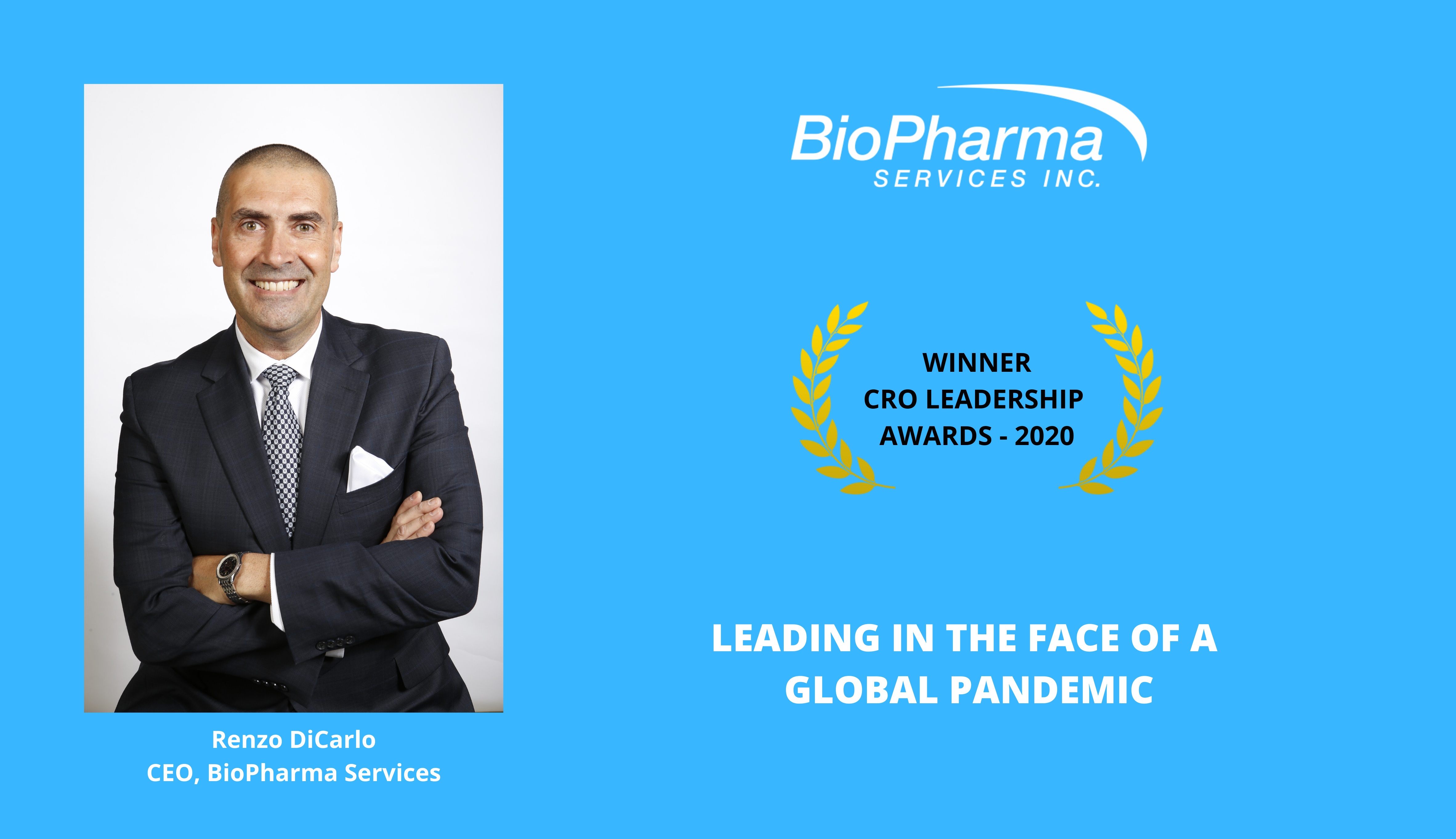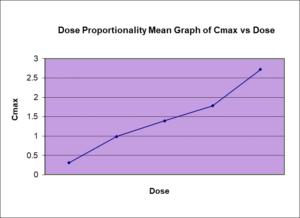BioPharma Services: Leading In The Face Of A Global Pandemic
Navigating a leading Phase 1 CRO through a global pandemic.
In my role as CEO at the clinical research organisation BioPharma Services Inc., I am normally concerned with the governance of our company and the leadership of more than 250 members of staff across two research sites in Canada and the USA.
But the outbreak of COVID-19 has brought about changes to my daily tasks, as well as some unprecedented challenges to our clinical environment.

We are one of the few sites of our kind that remain open, with many others across the world closing down. Our main concern is protecting the health and safety of our workforce and research participants, whilst working with biotech companies to conduct COVID-19 trials. My colleagues and I have been implementing internal safety programmes, business continuity plans and negotiating with research and development companies to ensure the important work we are doing is conducted in an environment which is safe for everyone.
One of the biggest challenges I face in a leadership role is trying to steer our company during these uncertain times. It is during this period I have found myself drawing on the lessons I learned from LSE’s Executive Global Master’s in Management (EGMiM).
Prior to studying on the EGMiM programme, I completed an MBA at Queen’s University and an Executive Business Program at Ivey Business School at Western University, both in Ontario, Canada. What the EGMiM program provided was a different approach to the traditional MBA topics – such as finance, marketing, accounting, etc. The programme went beyond these subjects and highlighted the socio-economic and geo-political forces that affect businesses around the world.
These considerations have become all the more relevant given the global impact that coronavirus has had on all aspects of our lives.
The coronavirus pandemic has given me the chance to apply these lessons in the real world. What I learned about regional versus global markets is more applicable than ever, as concerns about imports and international trade has forced business leaders to take a more local approach to their operations. Classroom discussions on the importance of community – and the difference between leading as opposed to managing – have proved to be invaluable, as I am tasked with guiding my staff and our organisation through these anxious times.
I feel privileged to be working for a company that is actively responding to the COVID-19 crisis. I am immensely proud of all my colleagues for the work they are doing in such difficult circumstances, and I am thankful for the lessons I learned during my time at LSE – which are helping me tackle the unique and ever-changing situation we are faced with.
Renzo DiCarlo
CEO at BioPharma Services Inc.
Executive Global Master’s in Management (2015)
Read the original post here
About BioPharma Services Inc.
BioPharma Services Inc. is a full-service Contract Research Organization (CRO) specializing in the conduct of Phase I/IIa and Bioequivalence clinical trials for international pharmaceutical companies worldwide. BioPharma has clinical facilities both in the USA and Canada with a total capacity of 300 beds with access to healthy volunteers and special populations. Headquartered in Toronto, Canada, BioPharma’s comprehensive services also include Bioanalysis at our GLP Certified Laboratory, Scientific and Regulatory Affairs, Biostatistics and Safety Data Analysis (CDISC), Data Management and Medical Writing.
Popular Posts
-
What are early phase clinical trials?
Clinical Trials are divided into 4 phases. Phase 1 and 2 trials constitute early phase trials, Phase 3 and 4 research studies are late-phase trials.
The primary objective of Phase 1 studies is to determine the correct drug dosage by evaluating drug safety and determining if there are any side effects. Phase 1 trials are conducted in healthy volunteers.
Phase 2 studies also study the safety of a drug but focus on evaluating its effectiveness. These studies can be conducted in healthy volunteers or in individuals who have a certain disease or condition.
-
What is a clinical trial?
A Clinical trial is a process which is performed to determine whether an investigational drug, device or therapy is safe and effective. In early phase research (i.e. Phases 1 and 2), the safety and effectiveness of the drug will be evaluated in healthy volunteers.
-
What is an investigational drug?
An investigational drug can also be called an experimental drug and is being studied to see if your disease or medical condition improves while taking it. Scientists are trying to prove in clinical trials:
- If the drug is safe and effective.
- How the drug might be used in that disease.
- How much of the drug is needed.
- Information about the potential benefits and risks of taking the drug.
-
Why do you need to take blood draws and how many blood draws will be required?
In order to evaluate the drug profile, we need to understand its pharmacokinetics. This is essentially how the body reacts to a drug after its administration through the mechanisms of absorption, distribution, as well as the metabolic changes. Therefore, blood draws are collected at various time points to better understand this mechanism. Each study requires a specific number of blood draws and total blood volume. These values will be provided to you and clearly stipulated in the informed consent form (ICF). The amount of blood that will be taken is outlined in the ICF.
-
Should I expect to experience any side-effects while doing studies?
As every study is testing an investigational product, there may be side effects. You will be provided with a list of side effects that have been reported in previous trials (if any), so you can make an informed decision whether or not to participate in the trial. During the trial you will be required to immediately inform clinic study staff of any adverse effects that you are experiencing. These side effects usually resolve upon discontinuation of the study drug.
-
Will I be compensated for doing a clinical study?
Volunteers are compensated and the amount varies depending on the length of the clinical trial, length of stay and number of follow-up visits. The compensation is not specifically related to the risks or type of drug involved in the trials or studies. Every study is different and therefore, the compensation will vary. Study volunteers may receive between $1000 to $4000 for a trial (based on the factors listed above).
-
Are food and accommodation provided over the course of the trial?
Food – Clinical trials are conducted in a controlled setting which means that all food is provided and trial volunteers receive standardised meals. Individual meal plans or meal preferences cannot be provided. If you have any food allergies or hypersensitivity to food product(s) that are clinically significant or life-threatening you may not be able to participate in a trial. Please contact us to discuss any food issues.
Accommodation – During your in-clinic stay you will share sleeping areas with other volunteers who are of the same gender. Similar to a hospital setting, supervision will be provided to ensure that your health and safety are being monitored.
-
What is the length of a study and do I have to complete all the visits?
Details of the duration of a study can be found on the Volunteer Hub.
-
What is informed consent and how is it carried out?
Before you decide whether or not to take part in a clinical research study, you will be required to read and understand the information provided in an Informed Consent Form (ICF). The ICF describes the clinical research study and the nature of the investigational product to be used, including:
- Your rights and responsibilities as a study participant.
- What you will be asked to do during study participation.
- The potential risks that you should be aware of.
During this process, you will have the opportunity to discuss and ask questions related to the conduct of the clinical research study with the study doctor/ study staff. You are under no obligation to participate and your decision to take part in a clinical trial is voluntary.
-
Can I bring my own device?
Yes, we encourage you to bring items that will help to pass the time while you are in the clinic. You can use the time to study or work or catch up on the movies you’ve been meaning to watch.
-
What do I need to pack?
Wondering what to pack before your site visit? Visit our Packing List page to learn more.
-
When do I receive compensation for taking part in a study?
You will receive compensation as outlined during the Informed Consent process. Typically, you will receive compensation once all study visits have been completed. If, for any reason, you do not complete all study visits, your compensation will be on a pro-rated basis (i.e. for the time that you have participated in the trial)
-
Where will I sleep during the clinical study?
We provide a clean, safe socially distance sleeping environment, in a dormitory of hotel room style. Watch video
-
Can I bring my own food?
All aspects of clinical trials are closely monitored including the food and drink consumed by participants. While you are in the clinic, you will be provided with all meals as per the study guidelines. You will need to eat all the food provided to ensure the guidelines are met. Watch video
-
Privacy
We respect and value the privacy of our volunteers. View our Privacy and Cookie Policy here.



